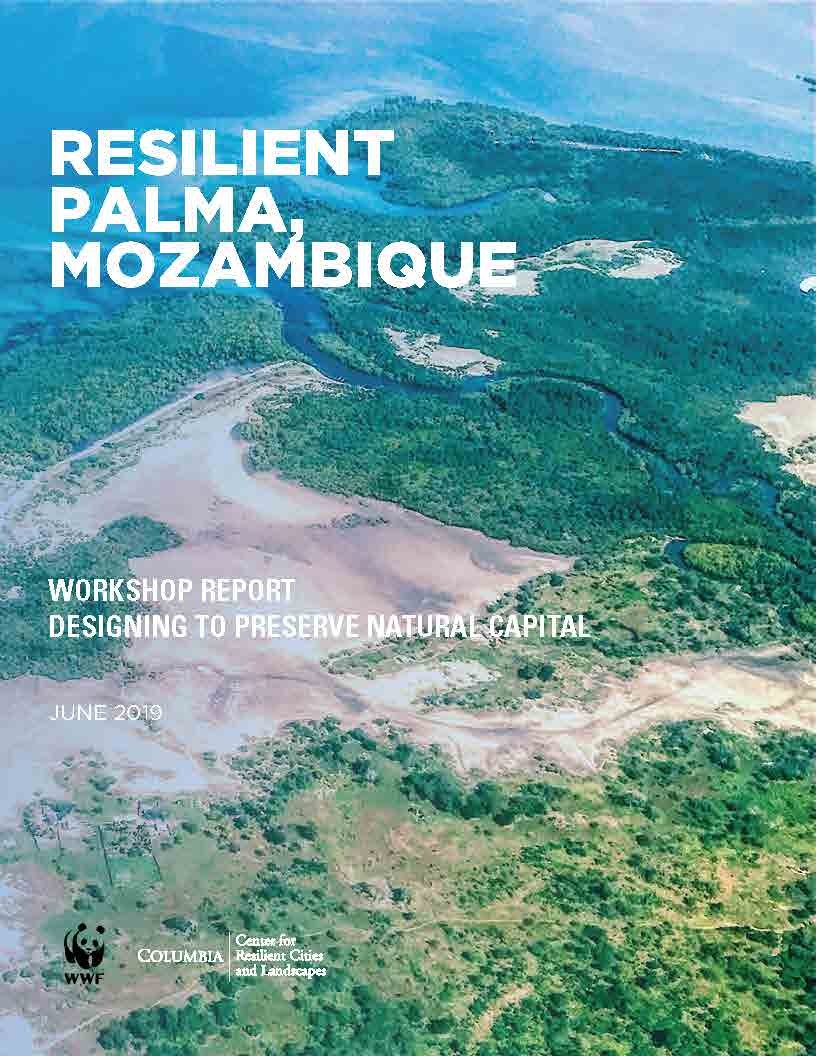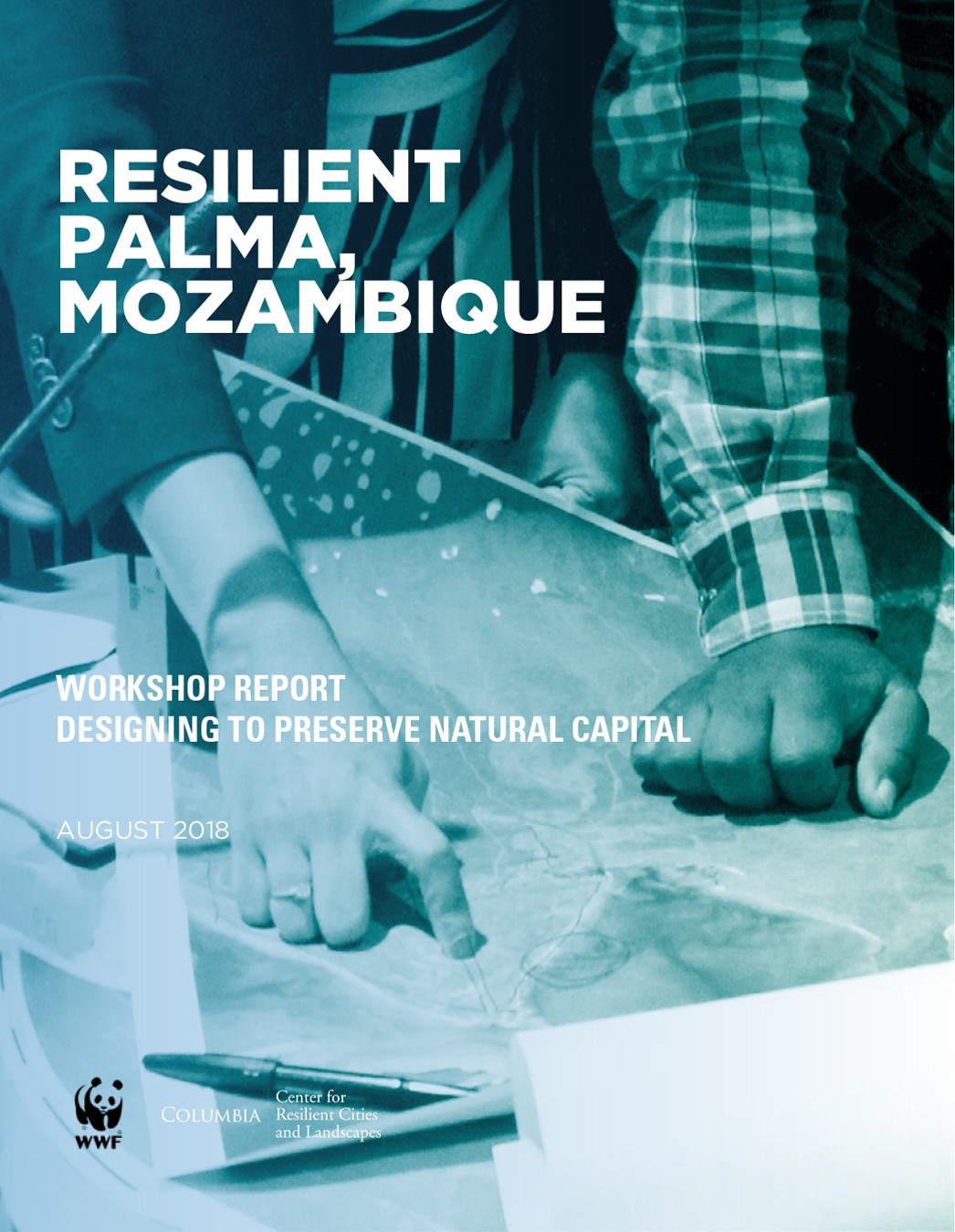How can the natural and human capital of Coastal Mozambique be preserved in the face of a natural gas boom?
Image Carousel with 21 slides
A carousel is a rotating set of images. Use the previous and next buttons to change the displayed slide
-
Slide 1: Cabo Delgado, Mozambique, Sentinel-2 - Vegetation Health and Agricultural Crops
-
Slide 2: Columbia University, Lúrio University, and WWF staff visit local farms
-
Slide 3: Meeting with farmers and fishermen
-
Slide 4: A visit to a charcoal kiln
-
Slide 5: Demonstration of the assembly of reed mats
-
Slide 6: ""
-
Slide 7: Local fisherman talking with students
-
Slide 8: Gas company staff explain housing relocation plans
-
Slide 9: Carmelo Ignaccio leads workshop discussion
-
Slide 10: ""
-
Slide 11: ""
-
Slide 12: Cesar Tique of African Development Bank
-
Slide 13: Kate Orff on the petrochemical industry in Louisiana
-
Slide 14: Lúrio University student Keir Senda
-
Slide 15: Columbia GSAPP student Camille Esquivel
-
Slide 16: Maputo workshop participants in August 2018
-
Slide 17: ""
-
Slide 18: WWF-Mozambique Director Anabela Rodrigues and Provincial Director Arlindo Dredge
-
Slide 19: ""
-
Slide 20: ""
-
Slide 21: Pemba workshop participants in May 2019
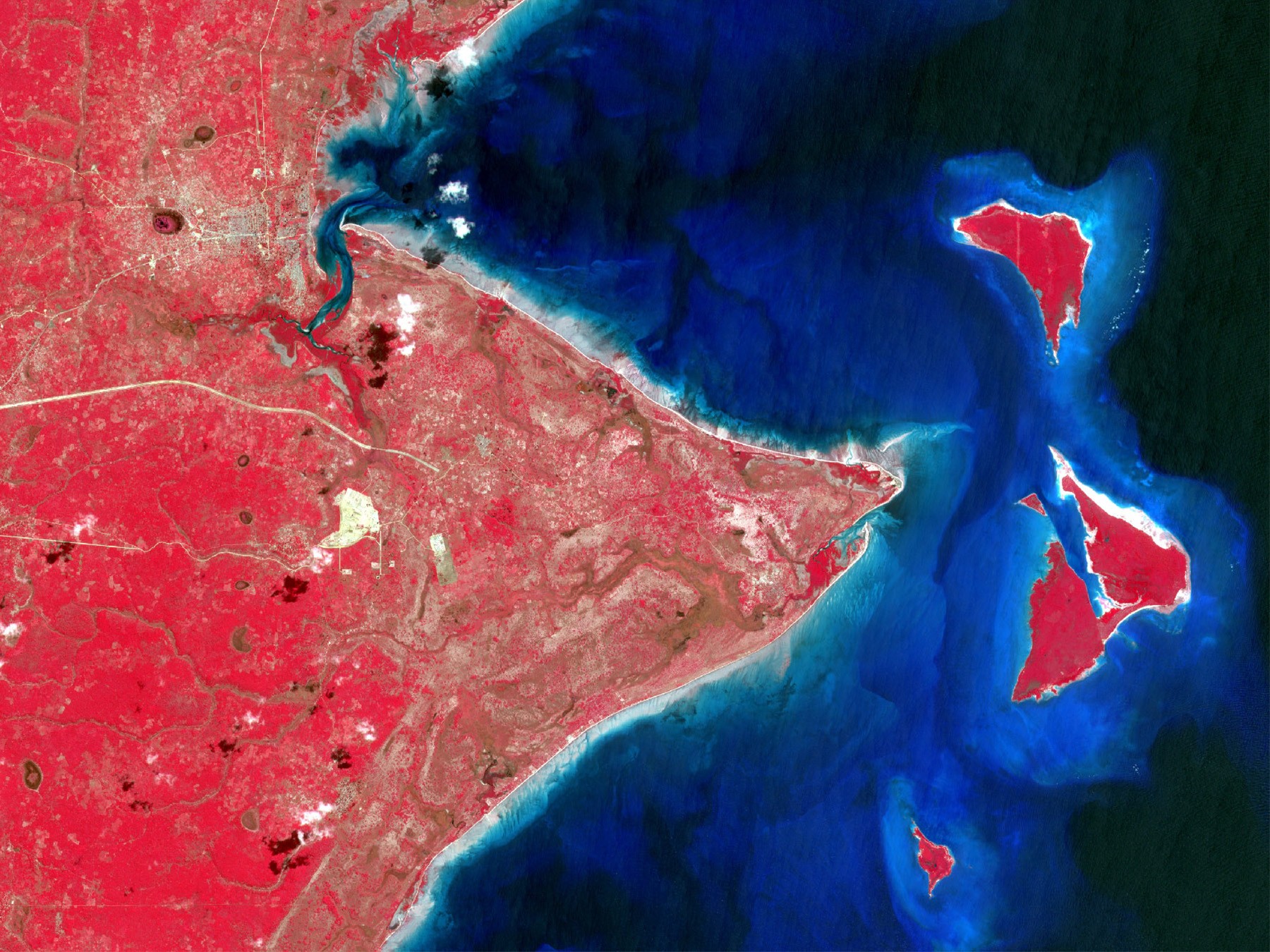
Cabo Delgado, Mozambique, Sentinel-2 - Vegetation Health and Agricultural Crops
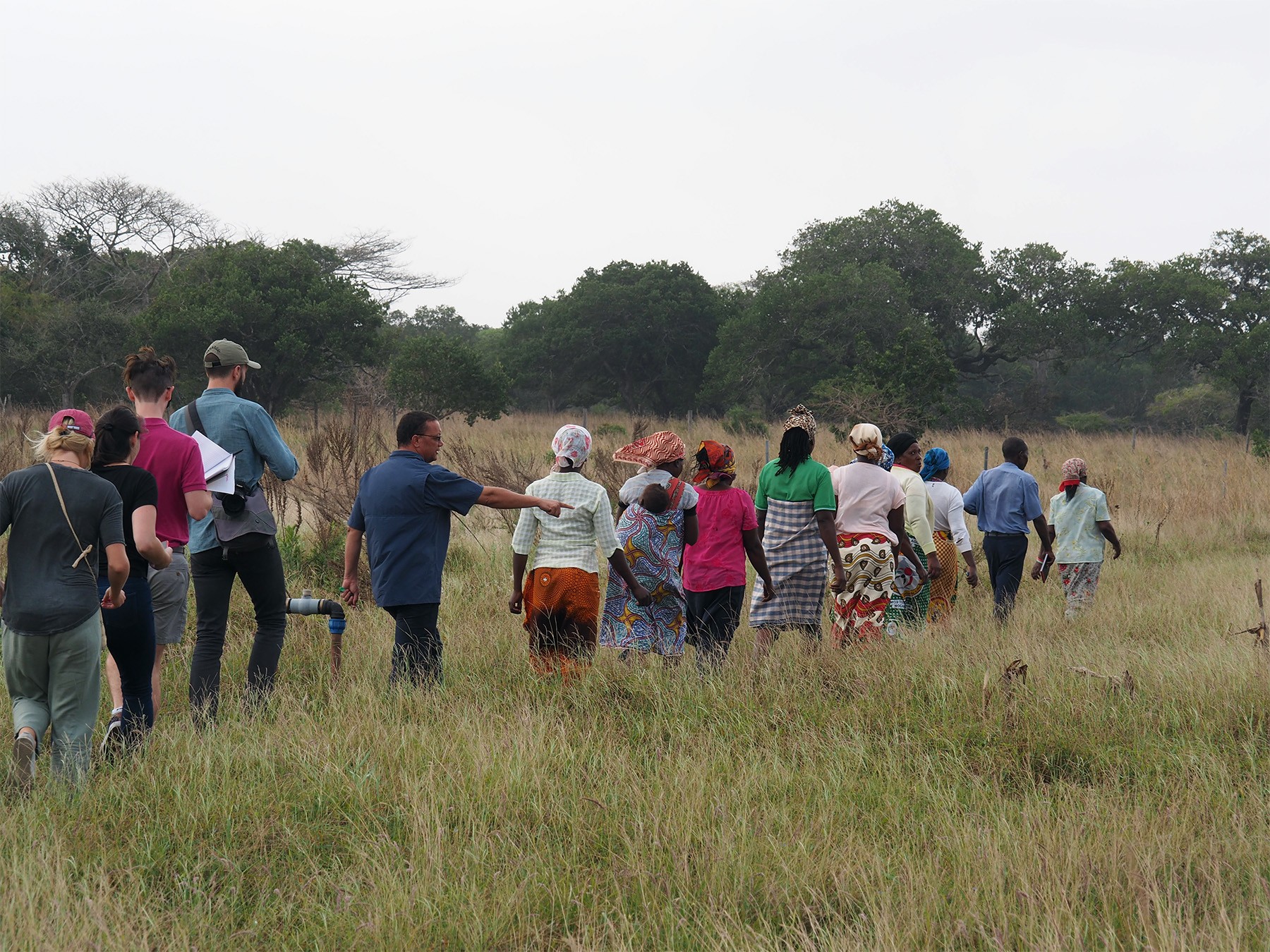
Columbia University, Lúrio University, and WWF staff visit local farms
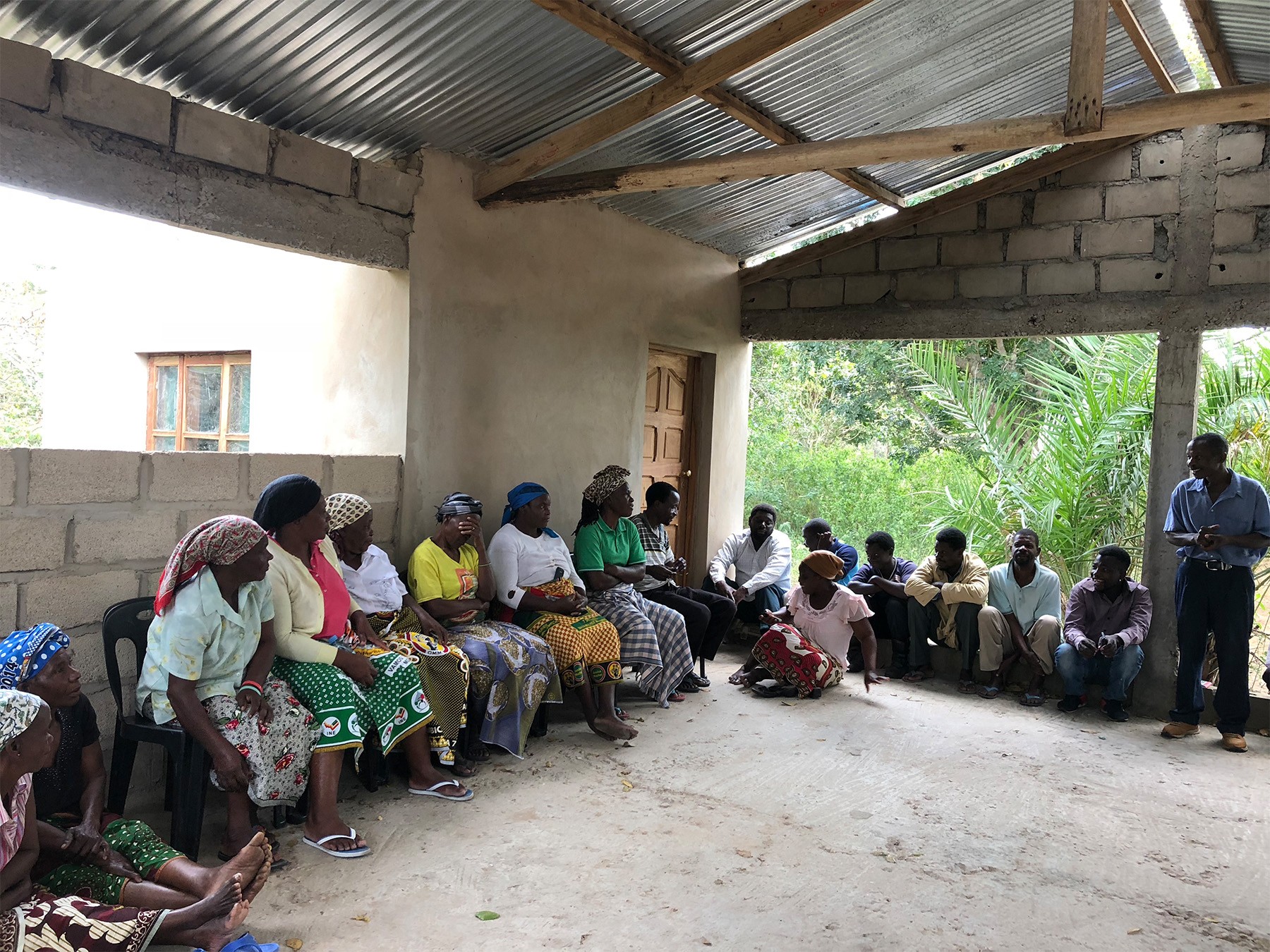
Meeting with farmers and fishermen
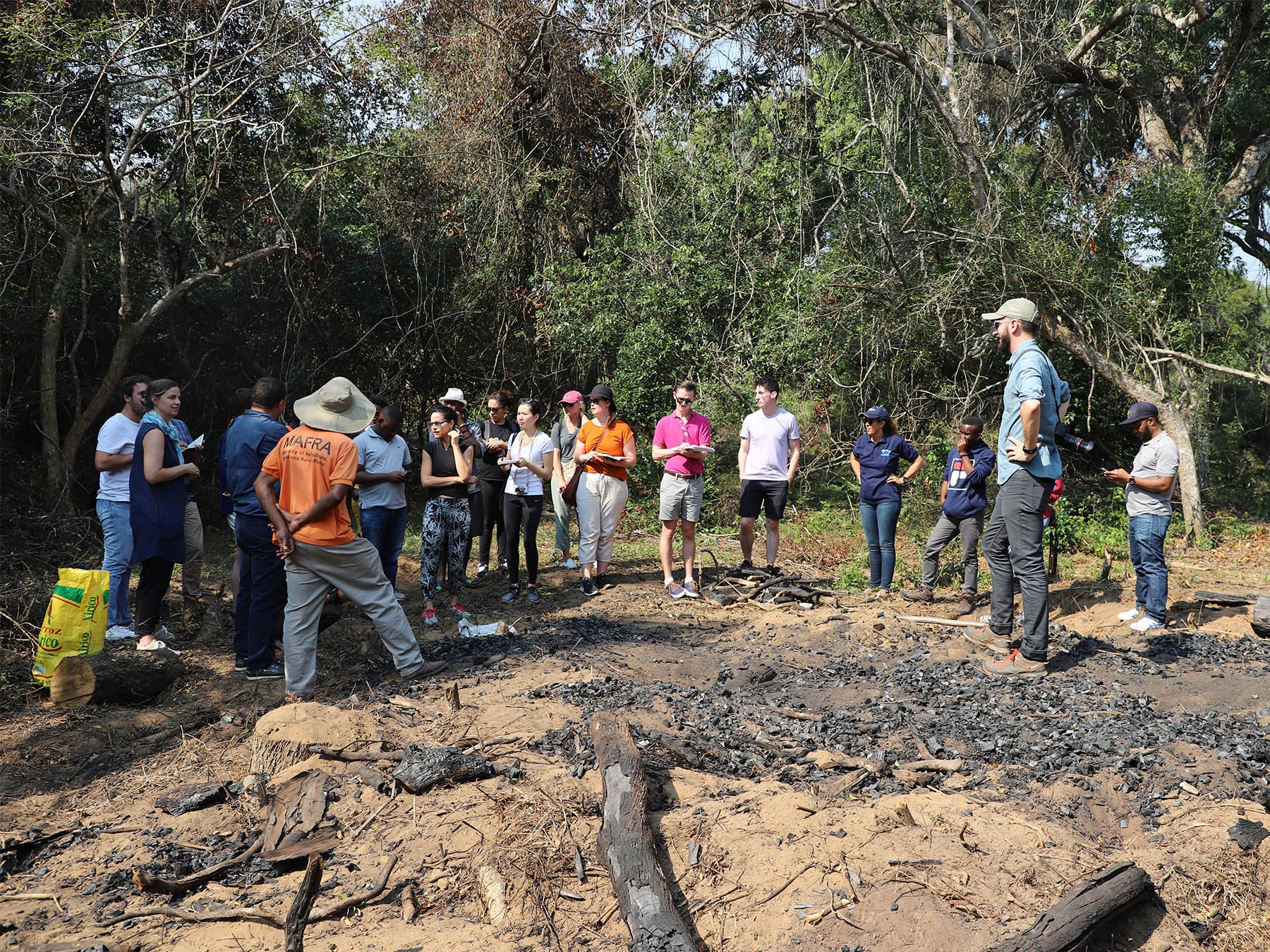
A visit to a charcoal kiln
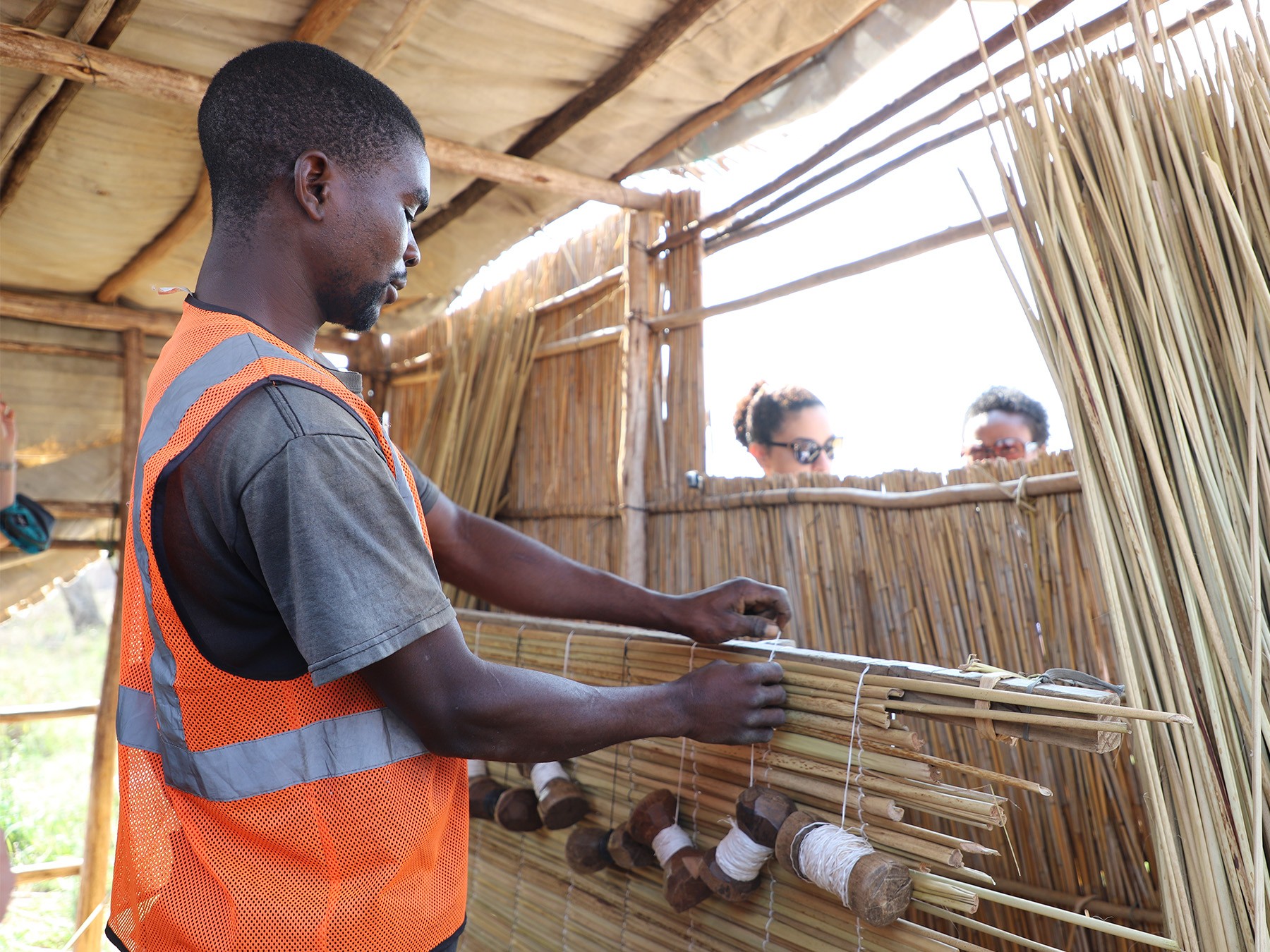
Demonstration of the assembly of reed mats
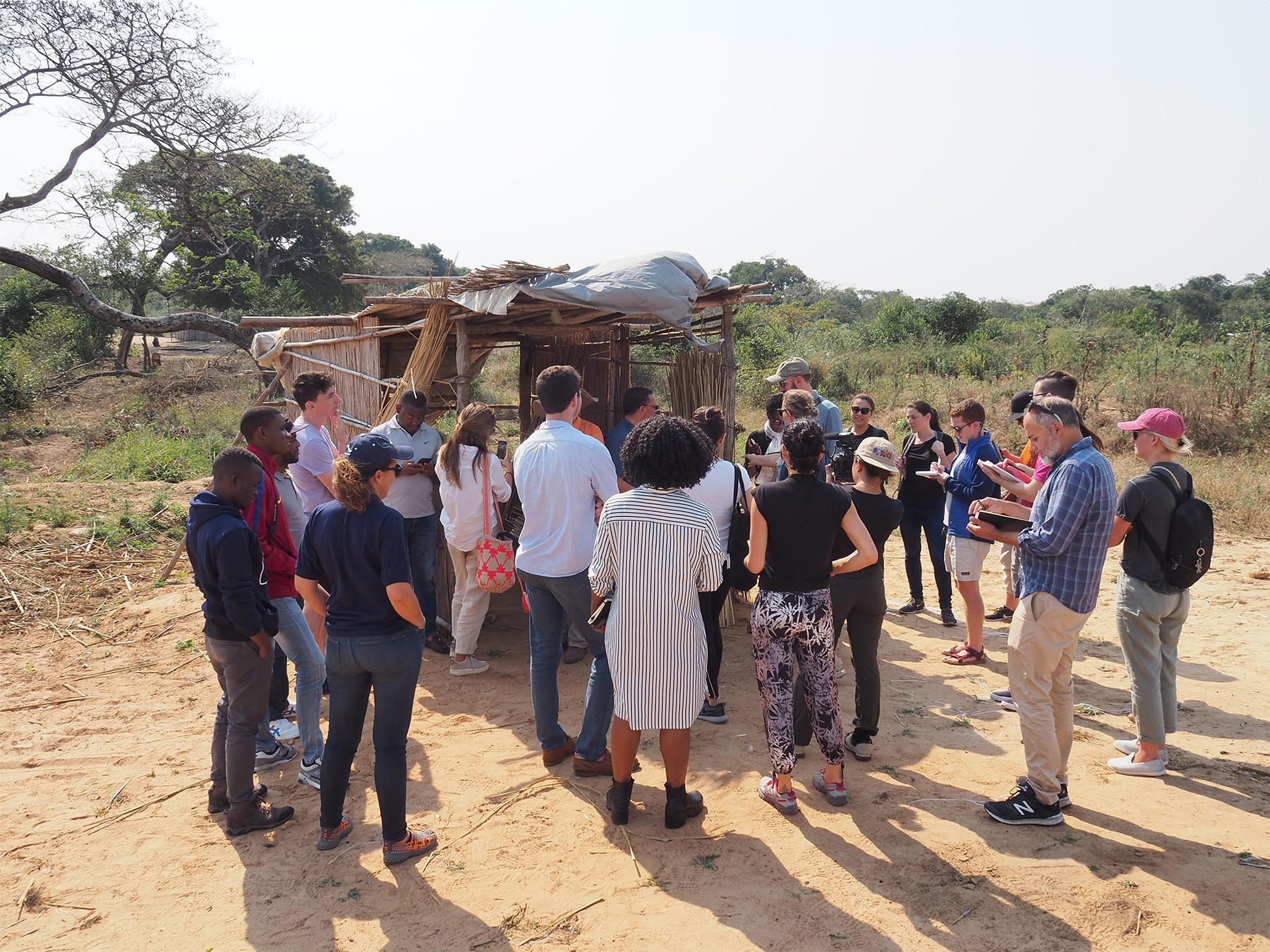
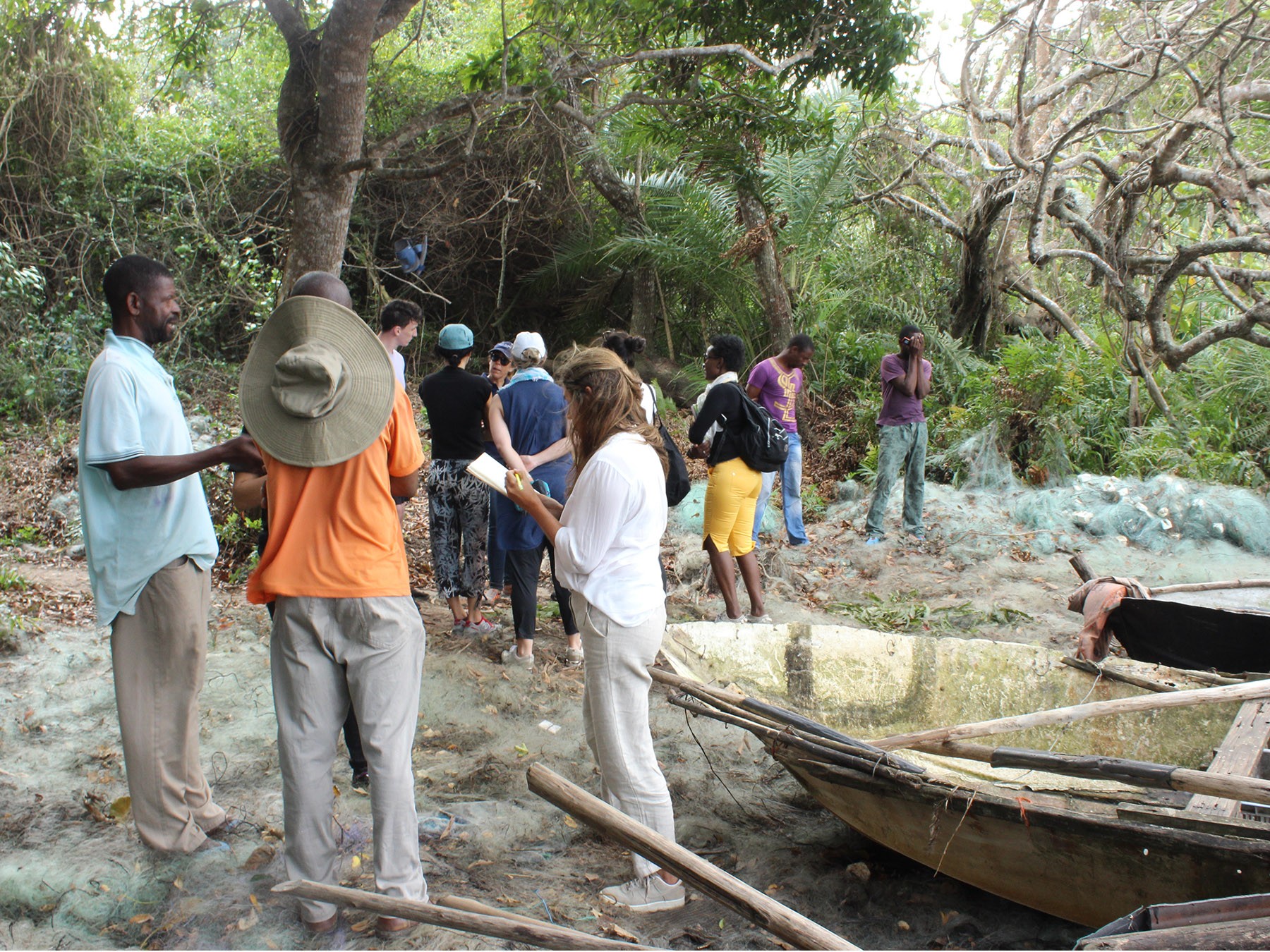
Local fisherman talking with students
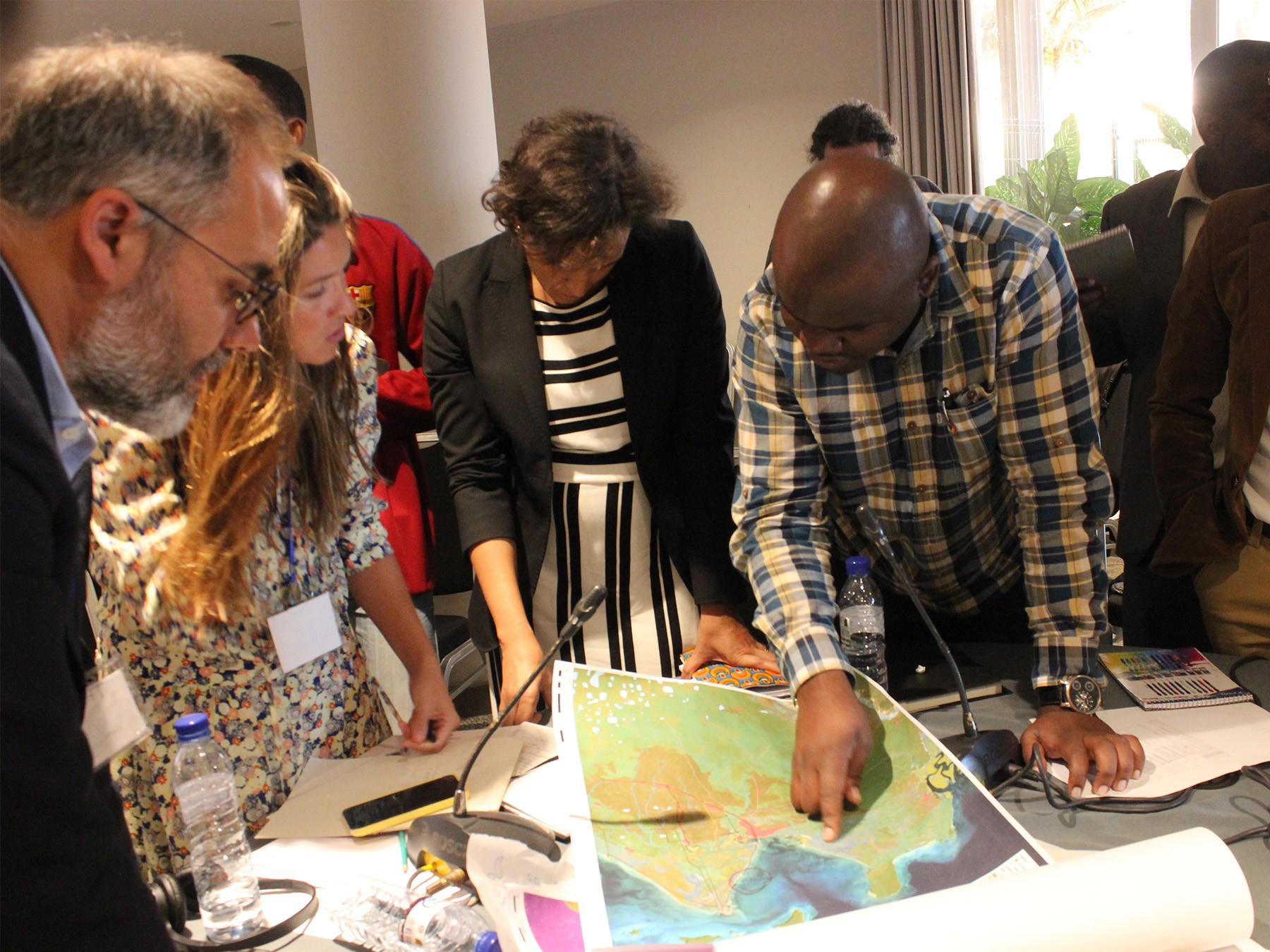
Gas company staff explain housing relocation plans
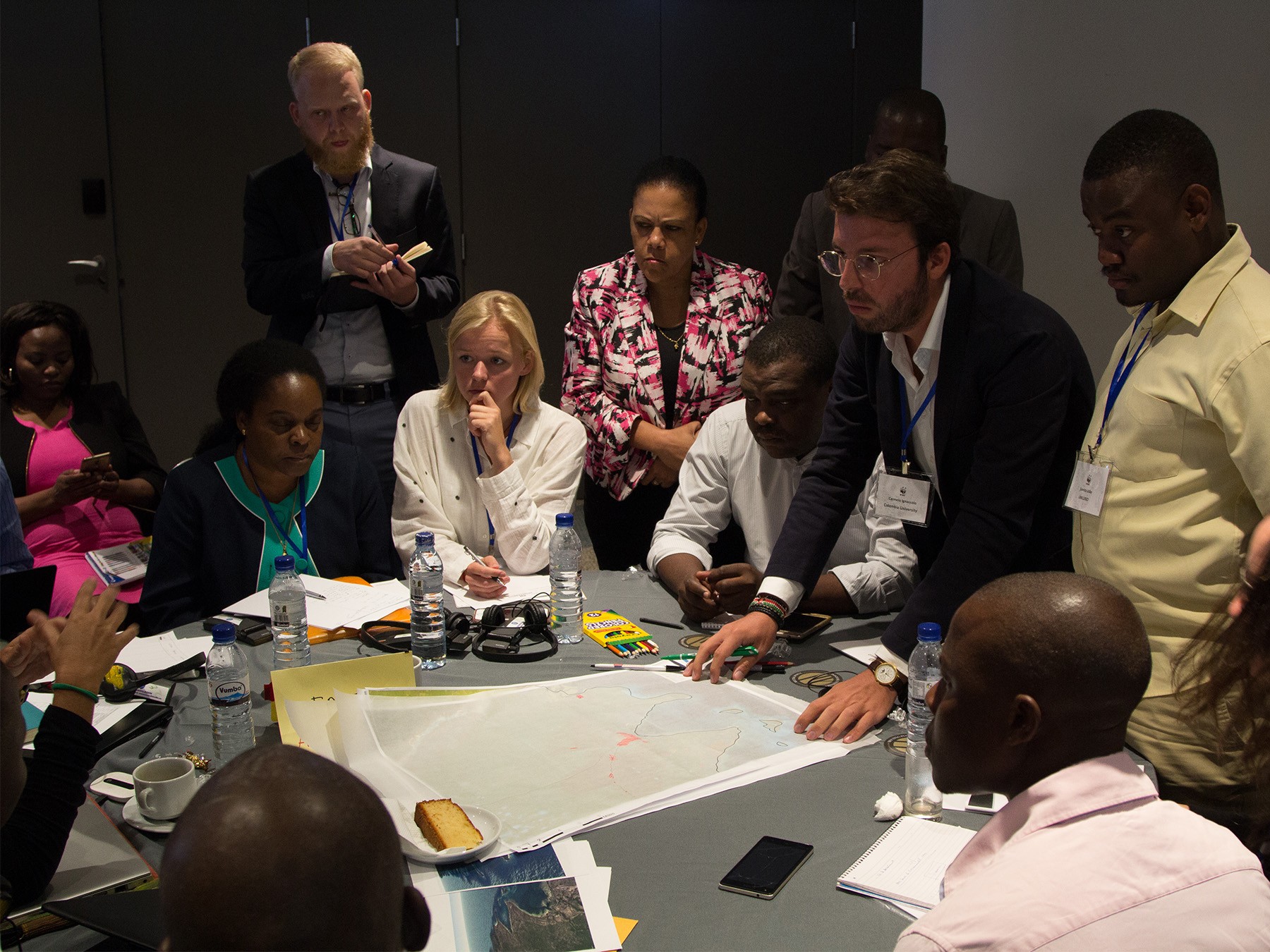
Carmelo Ignaccio leads workshop discussion
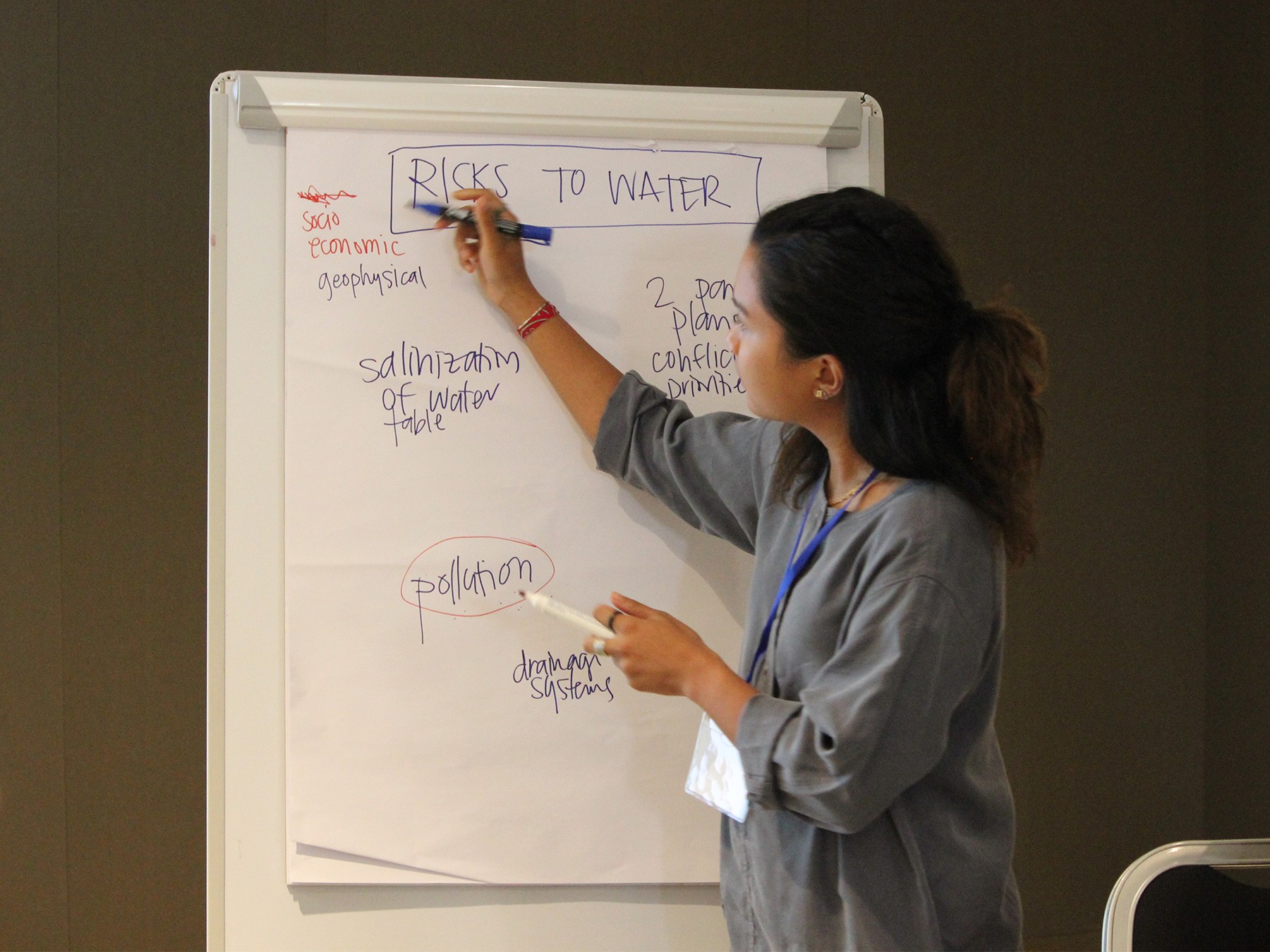
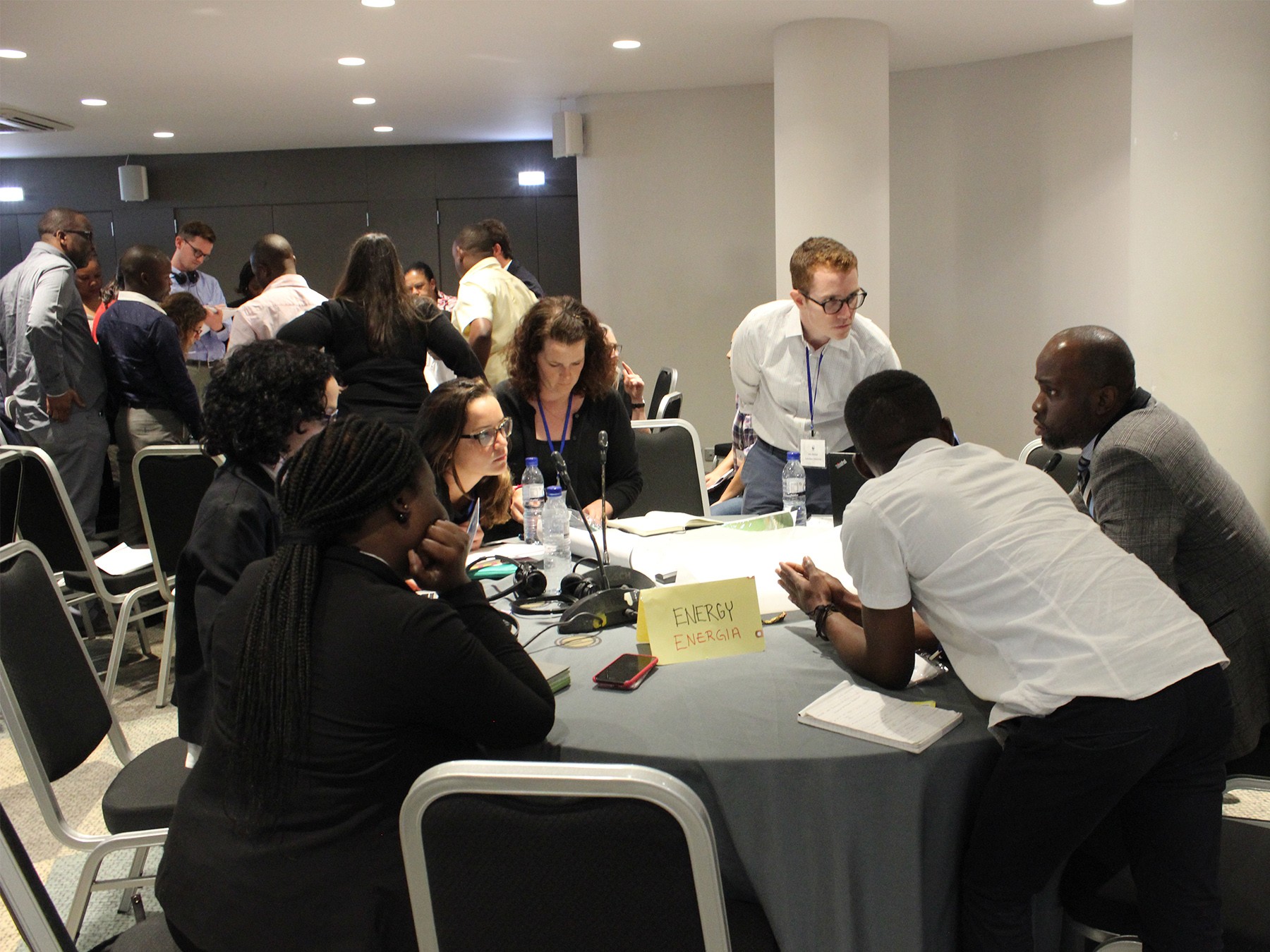
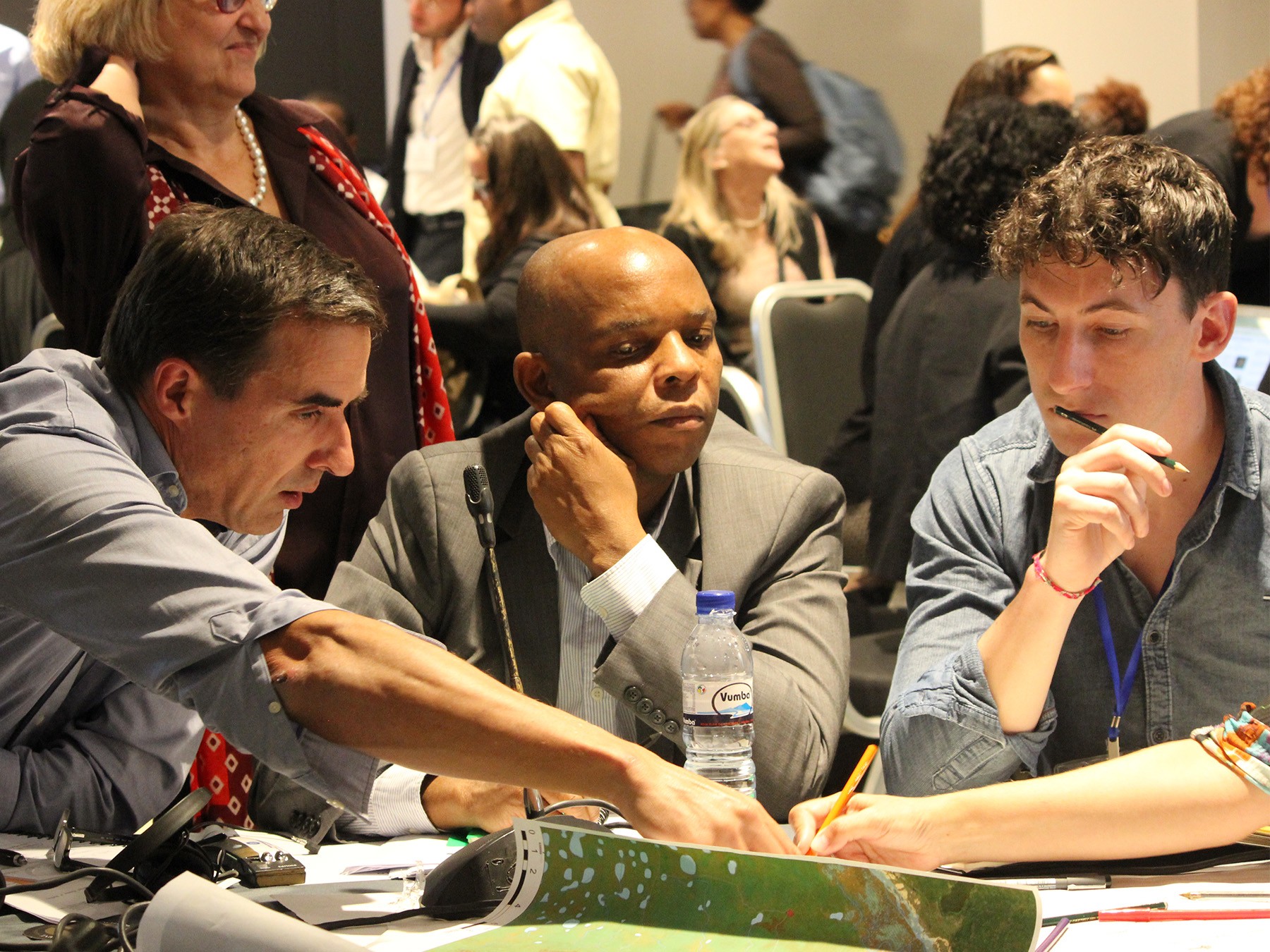
Cesar Tique of African Development Bank
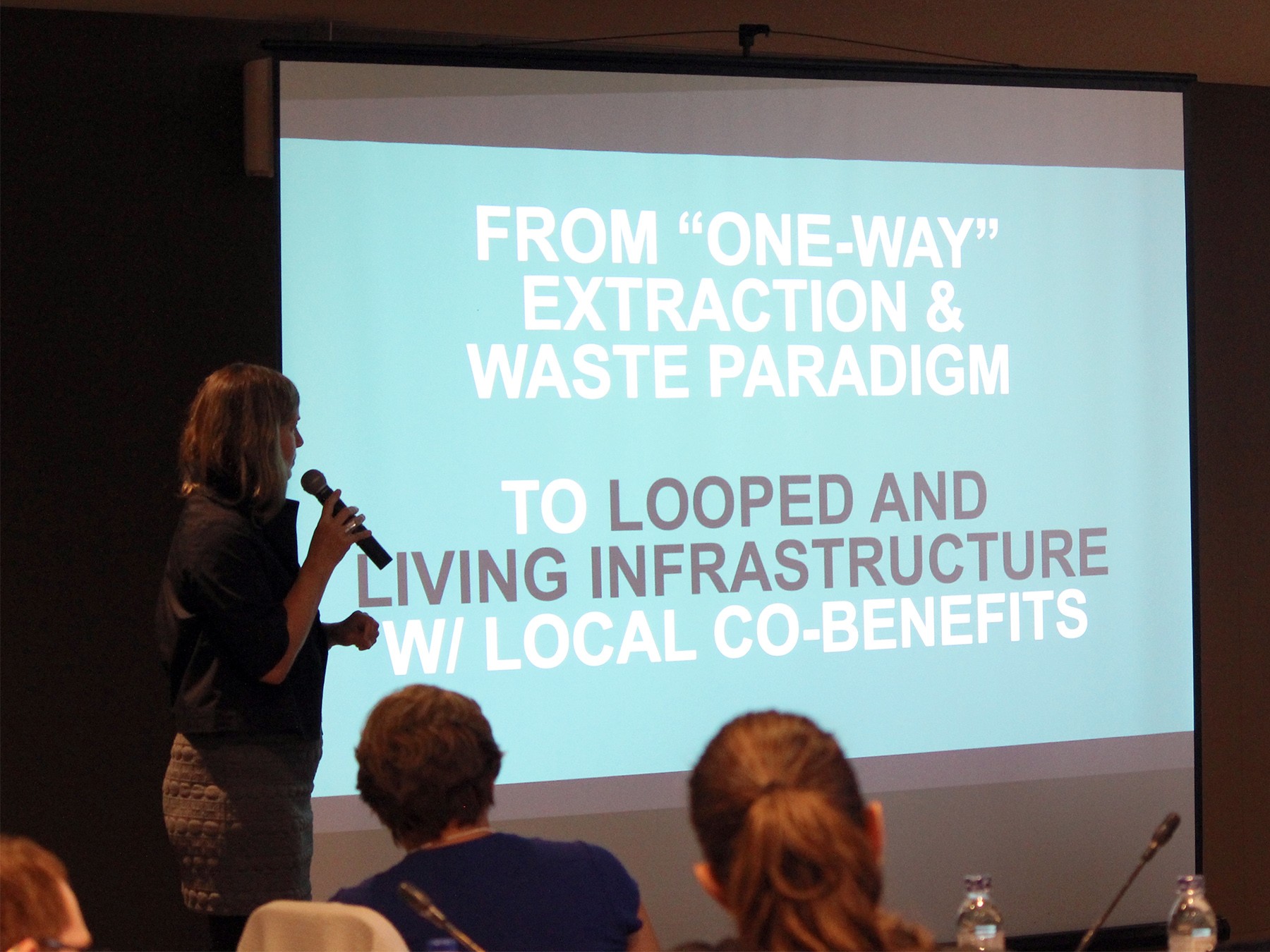
Kate Orff on the petrochemical industry in Louisiana
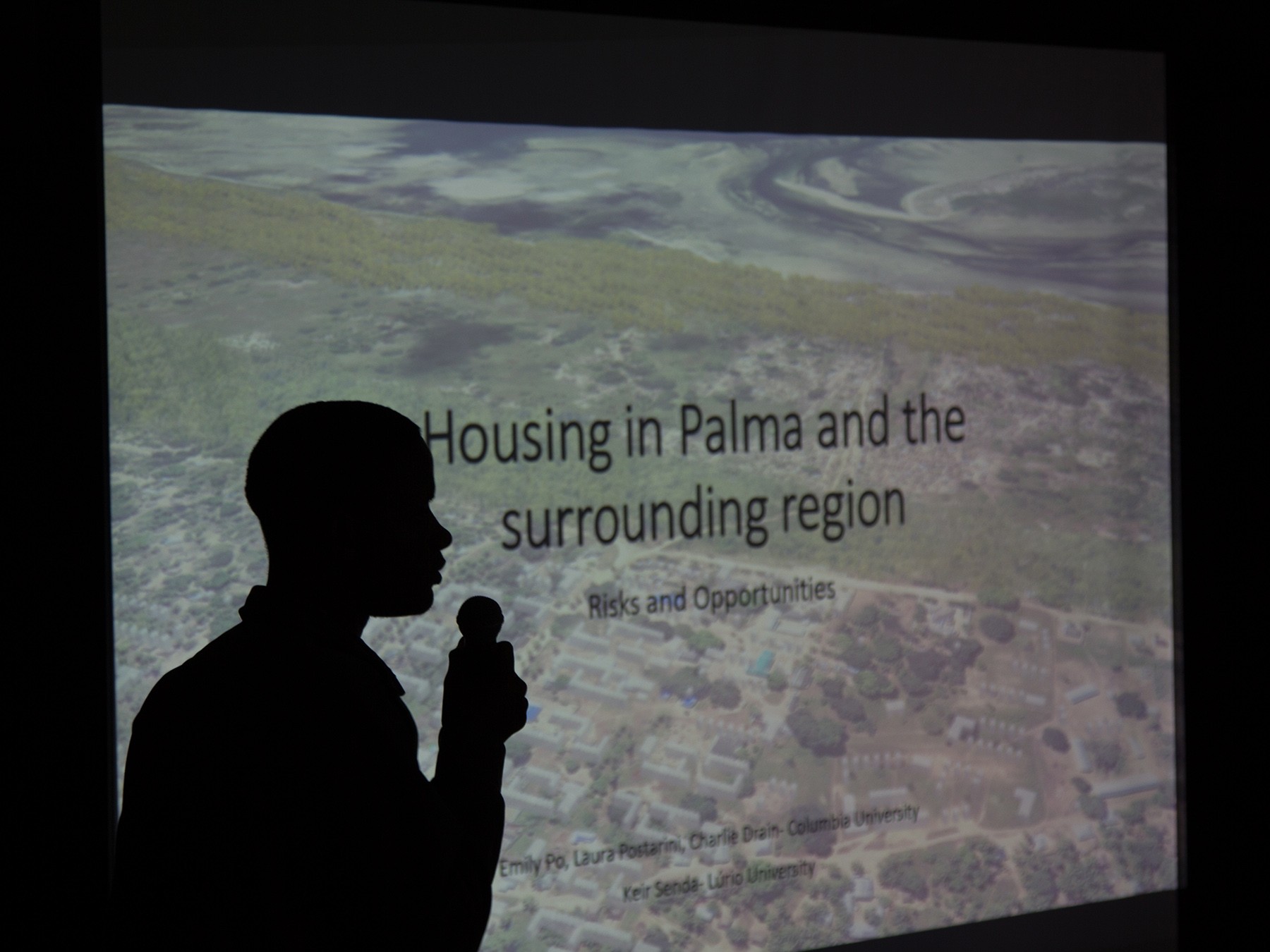
Lúrio University student Keir Senda
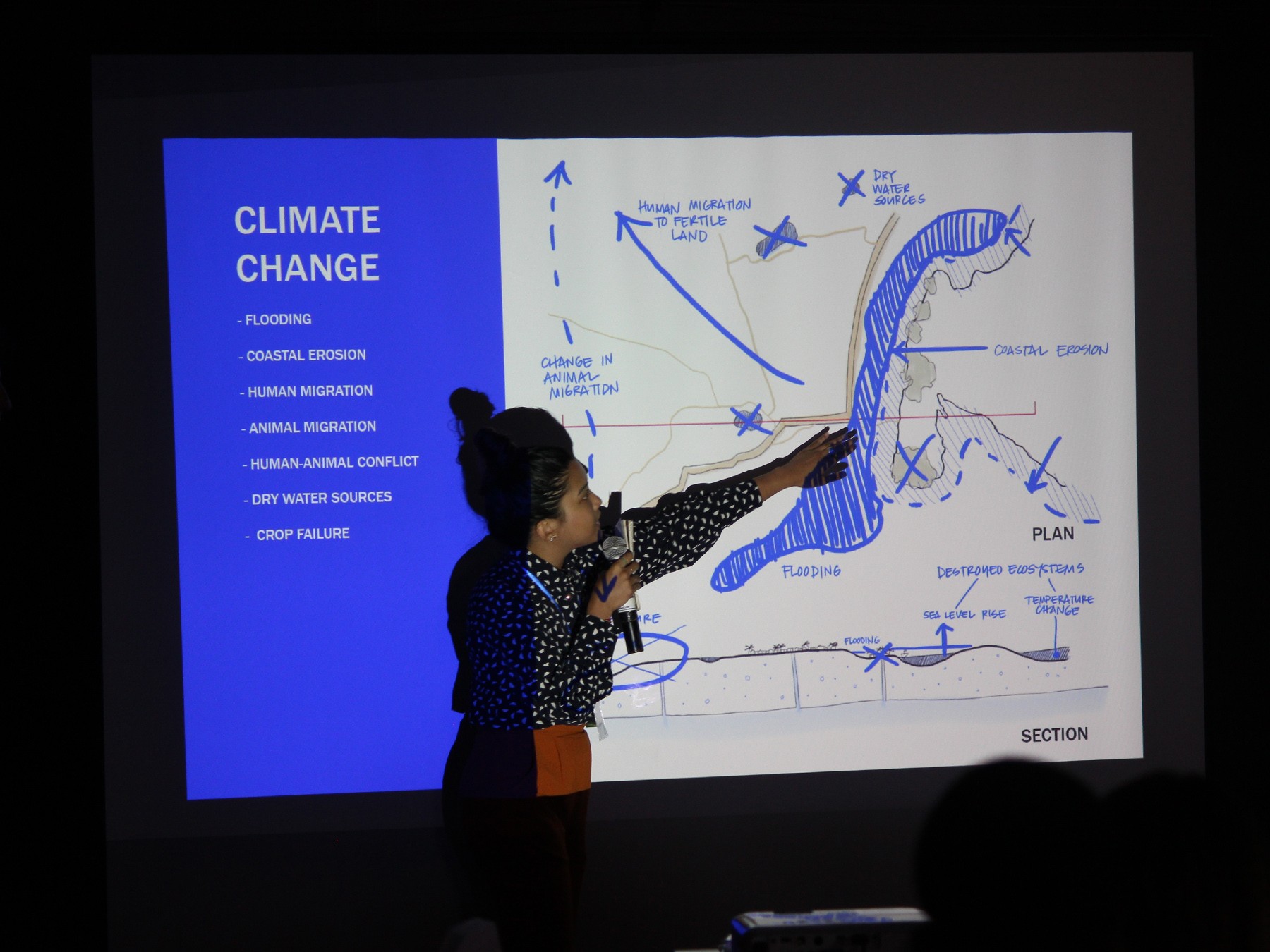
Columbia GSAPP student Camille Esquivel
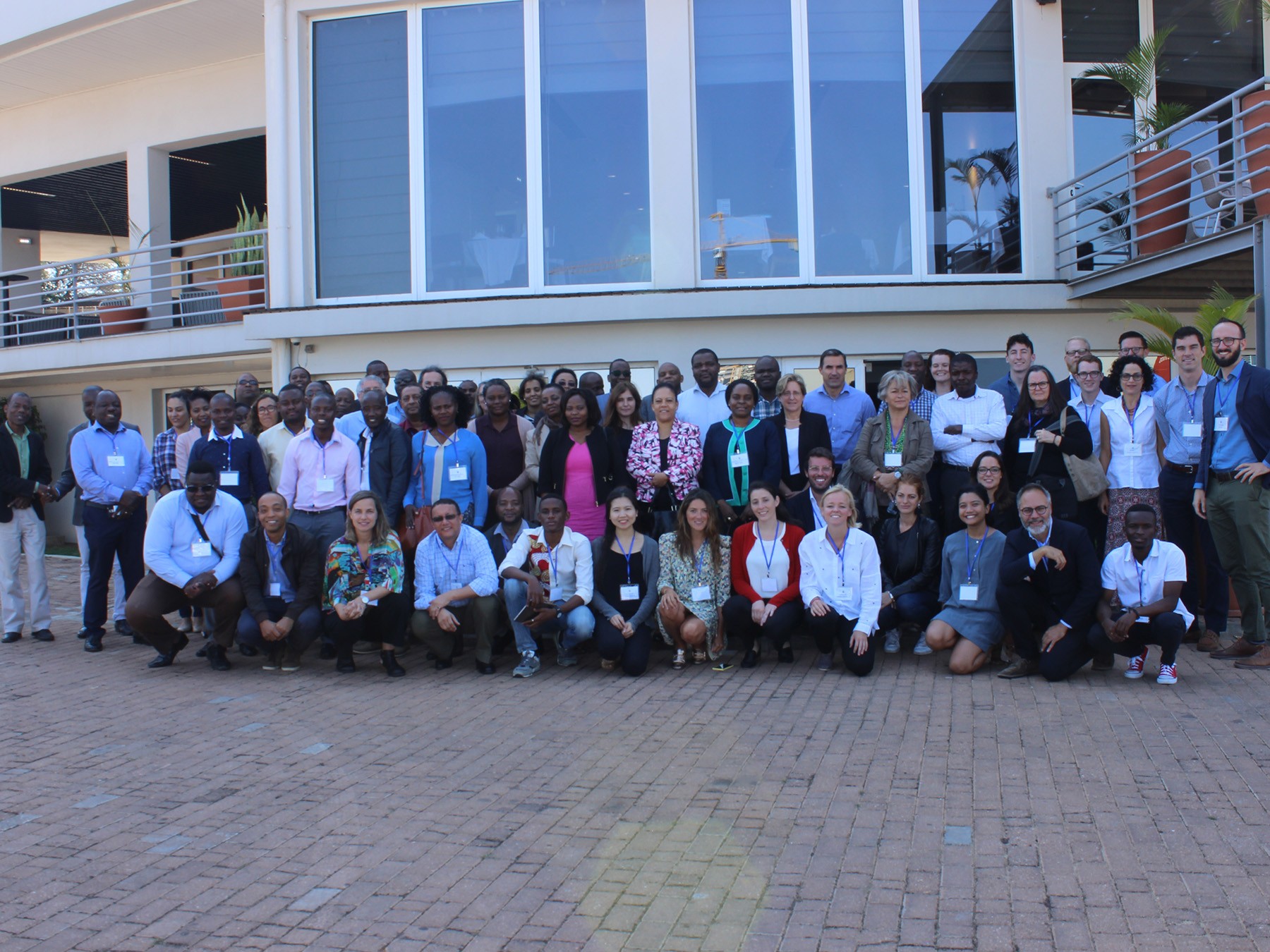
Maputo workshop participants in August 2018
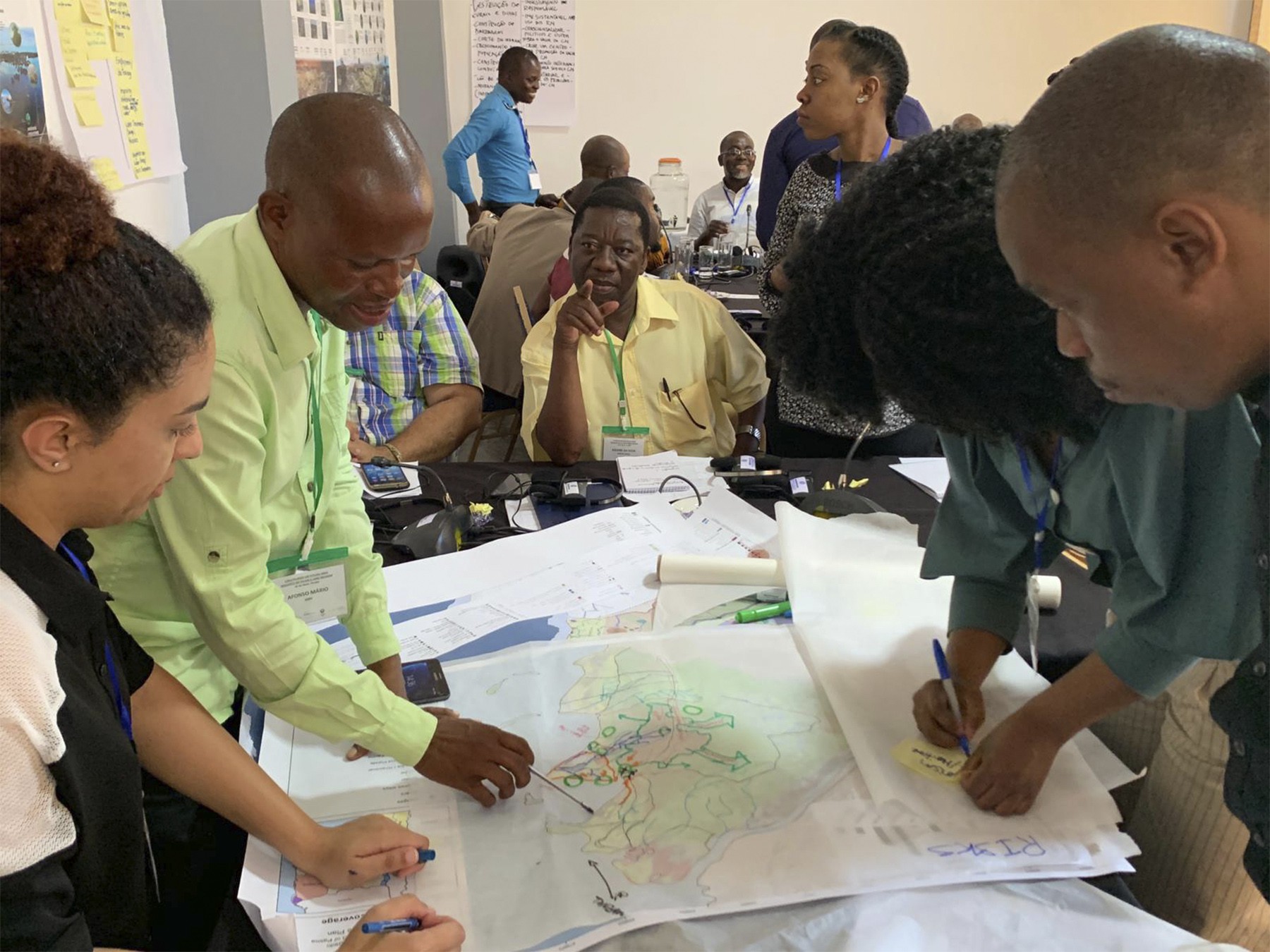
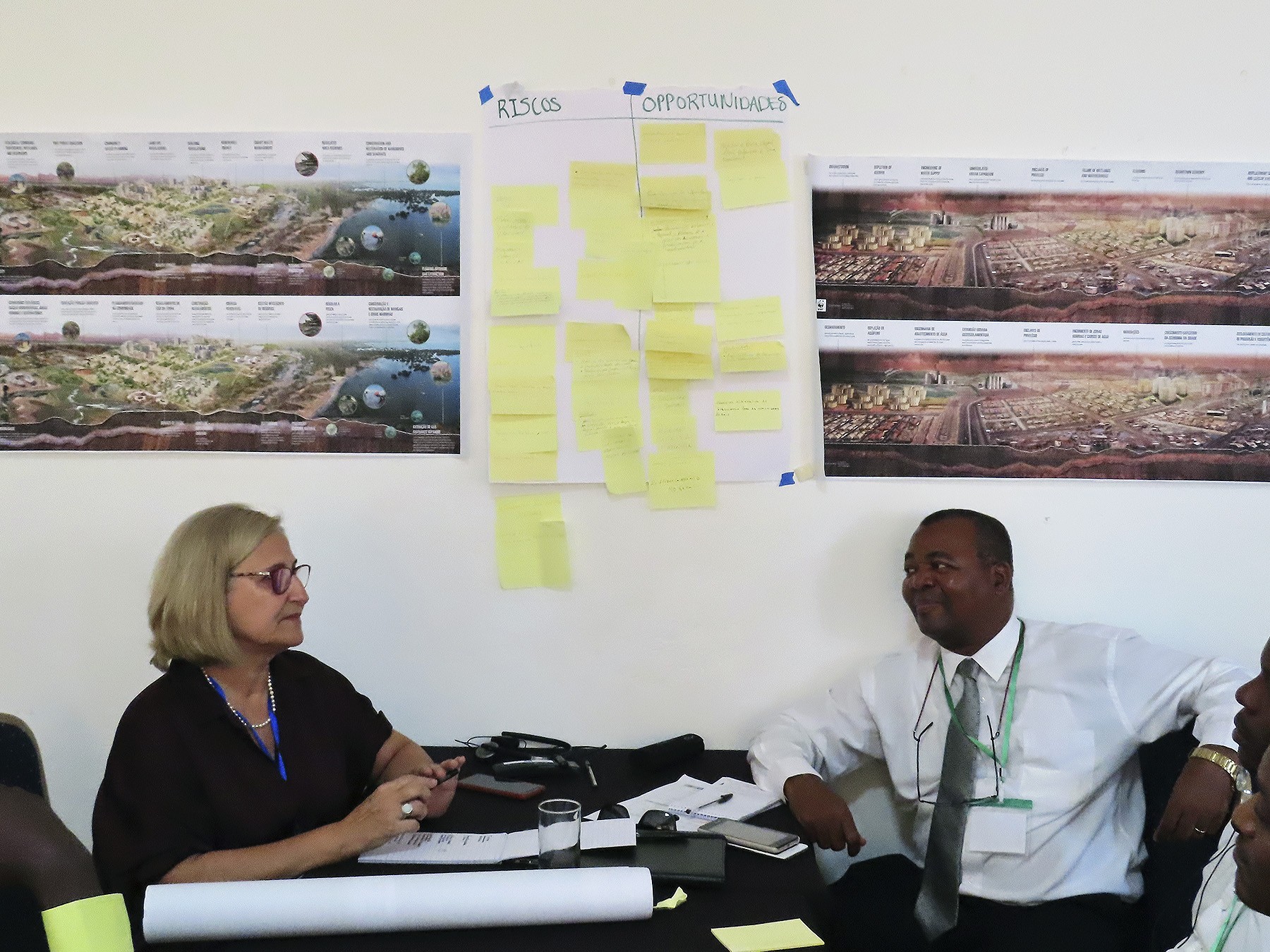
WWF-Mozambique Director Anabela Rodrigues and Provincial Director Arlindo Dredge
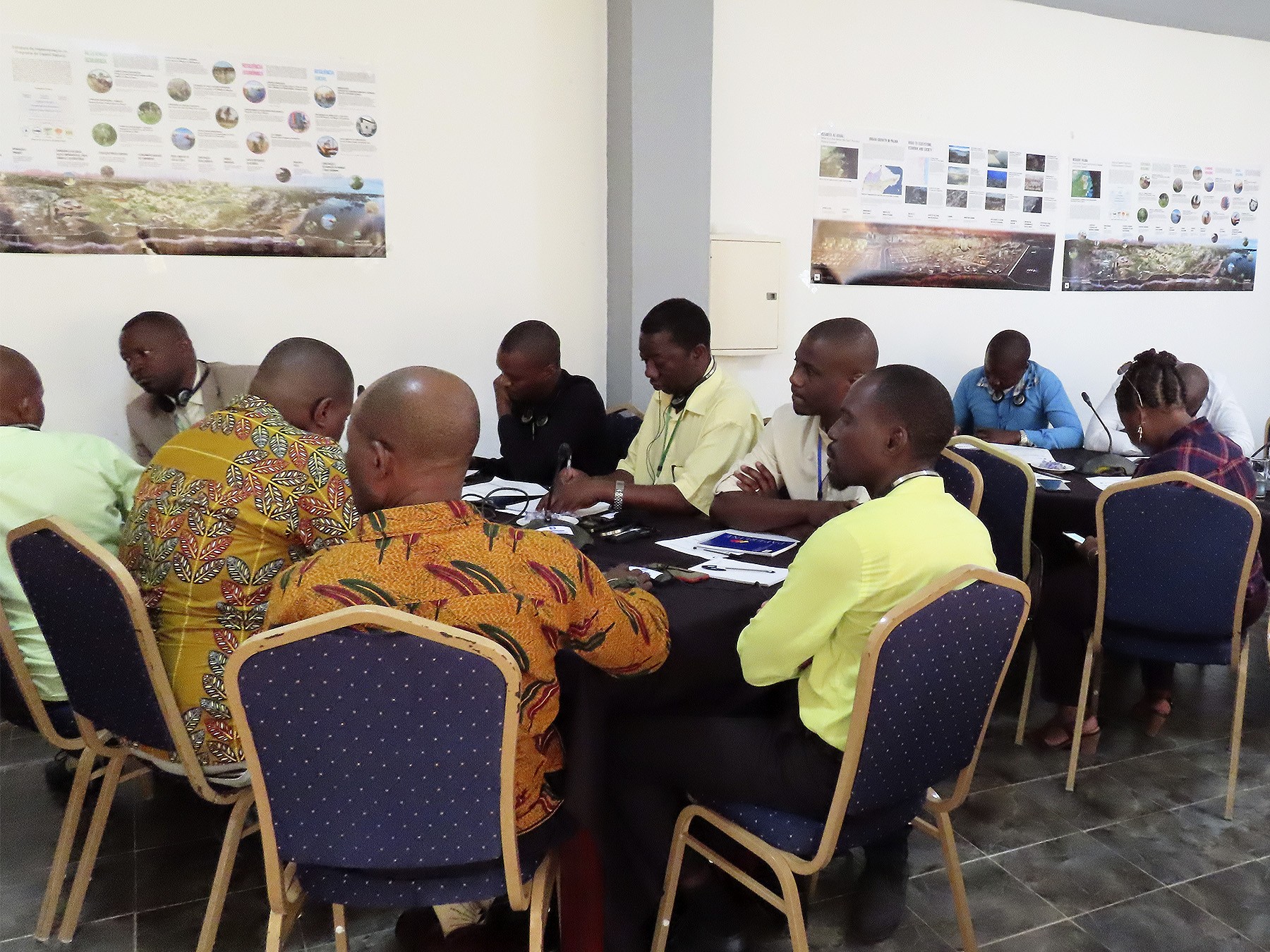
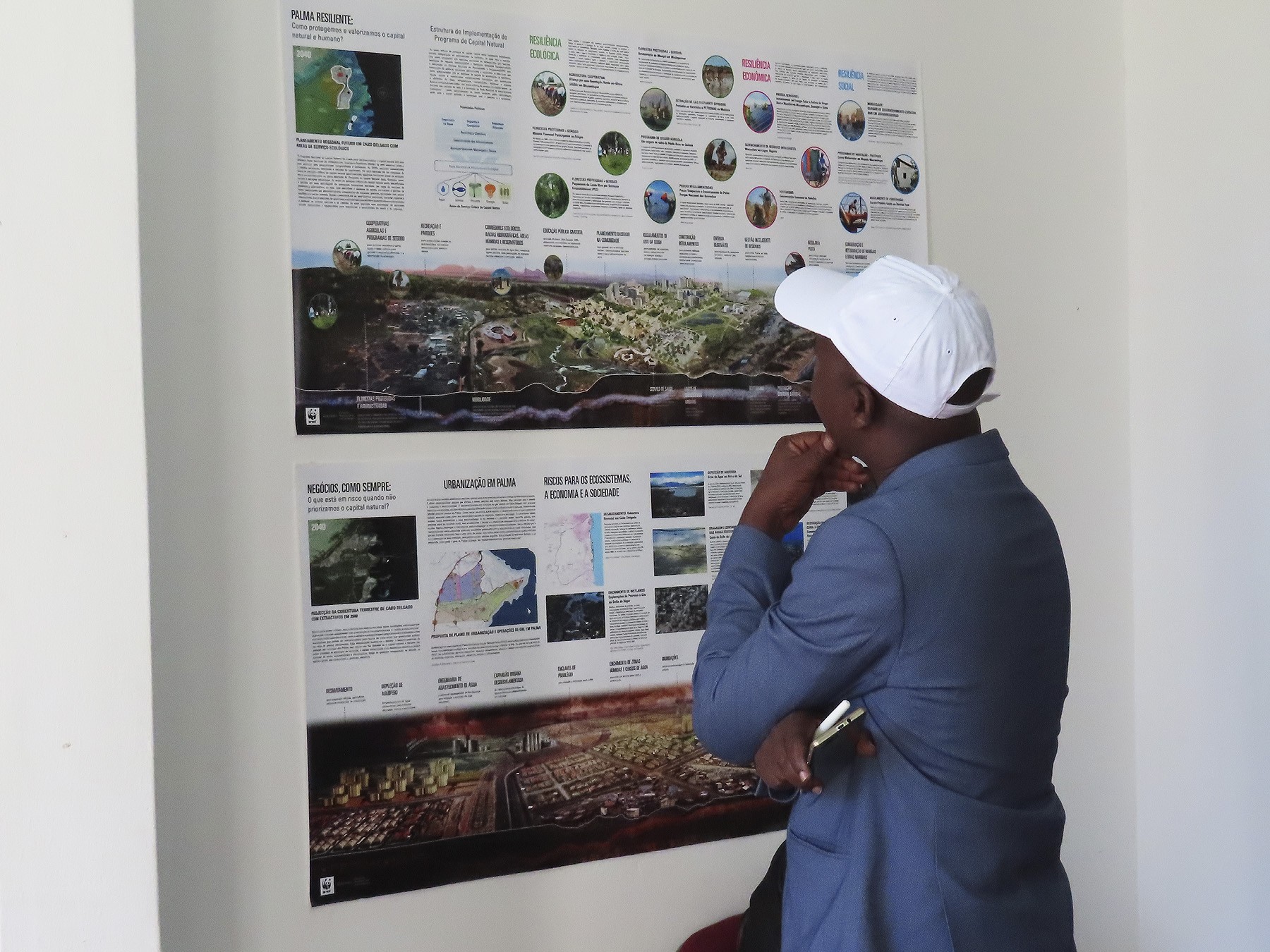
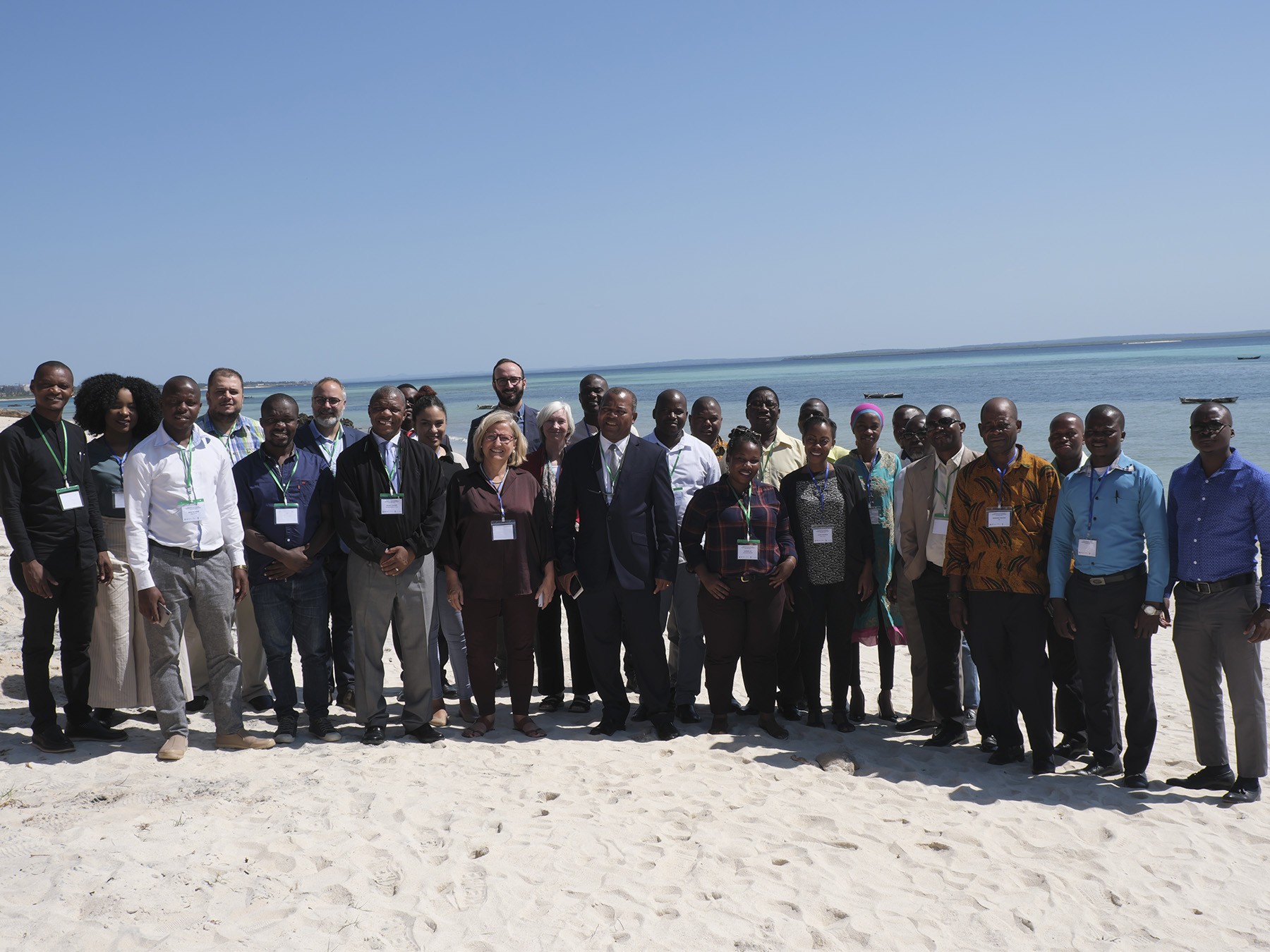
Pemba workshop participants in May 2019
Mozambique is one of the poorest countries in the world and, as two recent cyclones demonstrated, is extremely vulnerable to the impacts of climate change. The discovery of natural gas off the coast of Cabo Delgado has ignited hopes for economic development for some. For others, it has stoked fears that resource extraction will cause irreparable harm to this ecologically-precious landscape of mangroves, seagrasses, and coastal reefs. There is also concern that gas exploration will deepen social unrest which has manifest in a series of recent terrorist attacks.
The World Wildlife Fund (WWF) invited us to help visualize scenarios for the future of the town of Palma, a collection of fishing and farming villages. This region will likely experience explosive urbanization with the development of a liquefied natural gas (LNG) facility to supply markets in China and India. In August 2018, we traveled with GSAPP architecture, planning and Columbia business school students and faculty from Lurio University to Maputo to learn about the cities and landscapes of coastal Mozambique. With WWF and representatives from the Mozambican government and civil society, the students facilitated a workshop which explored how Mozambicans’ water, energy, housing and food all come from “natural capital” -- the vast stock of forests, rivers, wetlands and coastal ecologies. Together we conceived strategies to enhance and protect the natural capital in perpetuity.
After the workshop, we worked with WWF International and WWF Mozambique to develop two scenarios for Palma. In the “business as usual” scenario, the natural capital is plundered while widening inequality leads to social unrest. In an alternative resilient scenario, ecological, social and economic growth are mutually supportive. A public priority is placed on mitigating fossil fuel emissions and adapting to the effects of climate change. In June 2019, we presented these scenarios to officials in Cabo Delgado and to the energy company Anadarko responsible for extracting the gas. A pamphlet of these scenarios is being sent to all the relevant government agencies, businesses, and NGOs involved in the gas extraction of Coastal Mozambique. We will continue to press the fossil fuel industry to be accountable for the social and ecological risks they pose to communities and ecosystems here and elsewhere.
“These scenarios allow us to see what we want to happen. It gives us hope because we can see it.”
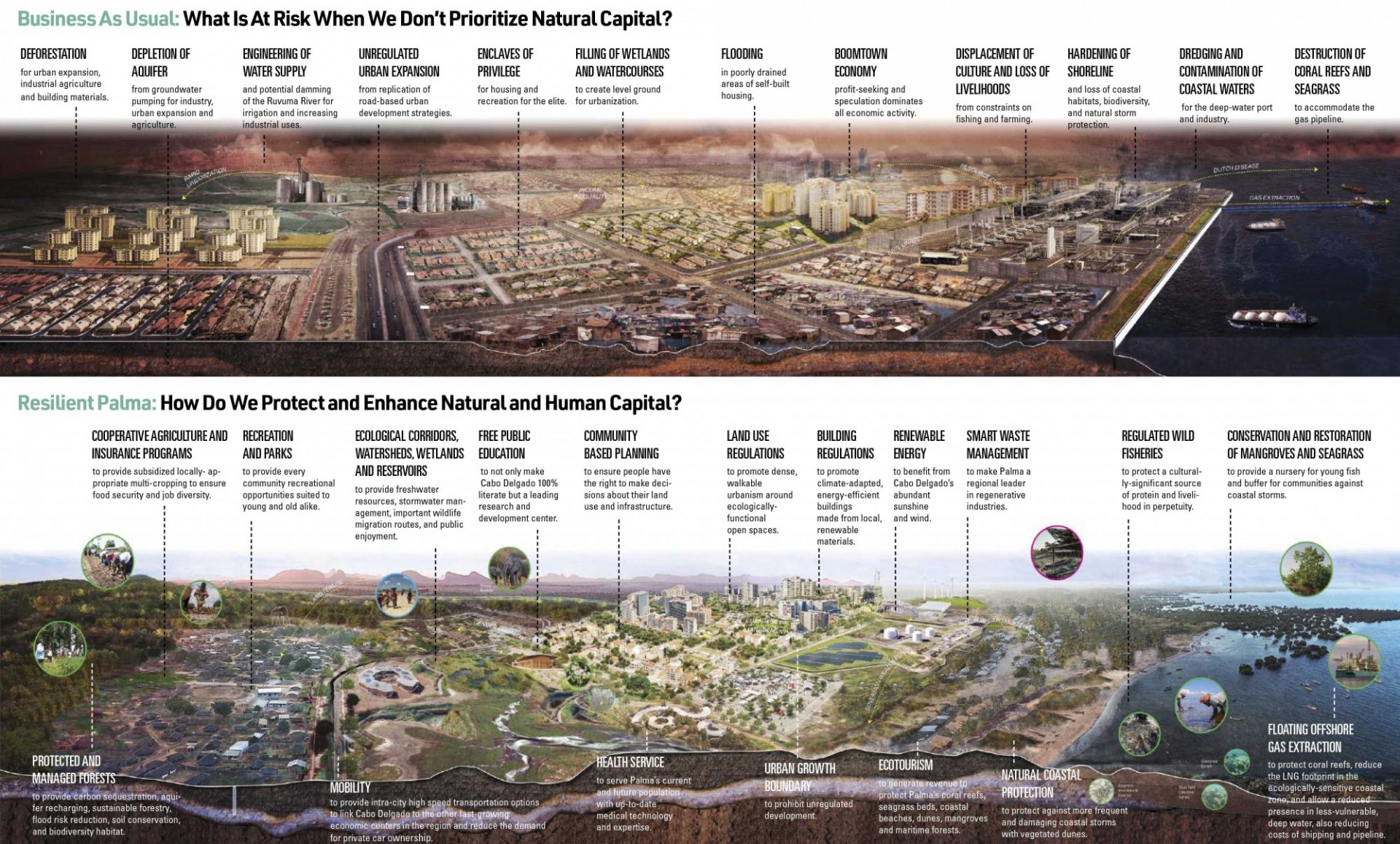
PUBLICATION
CRCL TEAM
PARTNERS
World Wildlife Fund (WWF)
National Ministry of Land, Environment and Rural Development, Mozambique (MITADER)
National Ministry of Economy and Finance, Mozambique (MEF)
Lúrio University, Mozambique
Third Way Africa
ABInBev
Standard Bank and Seedstars
African Development Bank (AfDB)
Council for Scientific and Industrial Research (CSIR)
UNHABITAT
